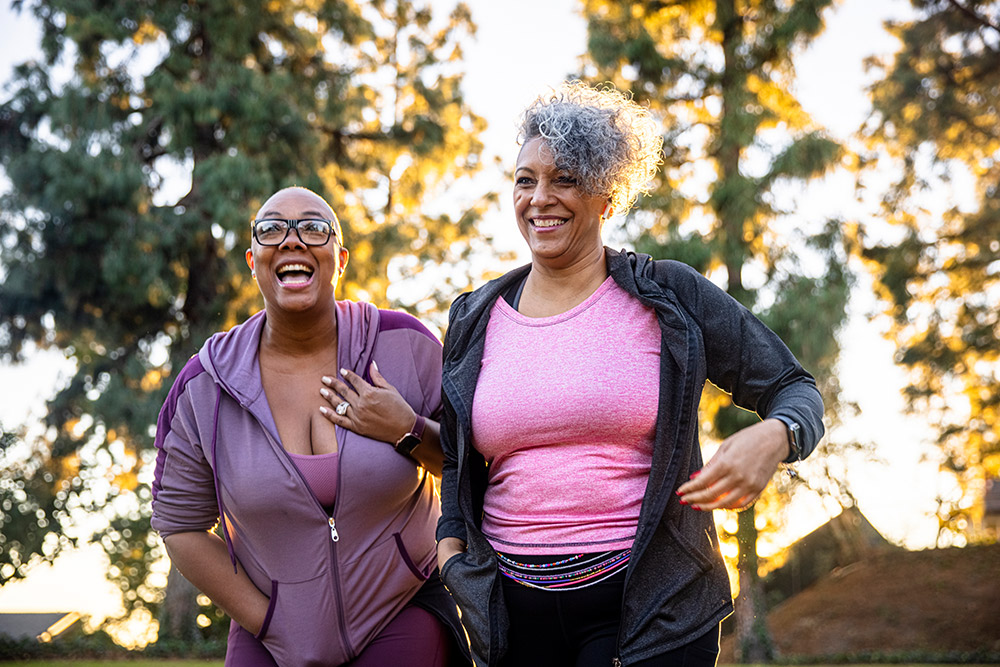Seven suggestions for positive changes in your life
By Dawn Ennis
We are survivors, if nothing else. Think about everything we endure and what many of us have overcome: childhood bullies, the rejection of relatives, our own doubts and fears, and the struggle to find our tribe. And that’s not even taking into account COVID-19, culture wars, and the current political climate.
Seems like just a few months ago so many of us vowed to hit the gym or clear the clothes off the treadmill, start a new diet or find some other way to change up our routine, right after ringing in the New Year. So how’s that going?
Yeah. Same here.
That is why instead of making (or trying to keep) those long-lost New Year’s resolutions, I say, let’s embark on what I’m calling a Spring Wring – wring out bad habits, create a space that’s safe from negativity, and take action to overcome anything that stands between reaching your goal from where you are now.
This guide is different, in the same way that we are different. It’s aimed specifically at those of us who are out and proud, closeted and stealth, and still trying to find our way in the world. One thing is certain: there is no one-size-fits-all solution to any issue related to being LGBTQ. We do experience, however, something that separates us in relation to the rest of society – no matter how much we embrace the idea of “community,” society itself too often sees our community as standing apart.
With that in mind, here are seven LGBTQ-specific self-improvement tips:
Identify what we can change, and what we can’t
Whether your anthem is Gloria Gaynor’s I Am What I Am by Jerry Herman, Ke$ha’s We R Who We R, or Born This Way by Lady Gaga, the bottom line is, this is us. Coming out is life-affirming and life-changing. As the saying goes, “We’re here, we’re queer, get used to it!”
But what have we gotten used to that no longer satisfies us? If you’re feeling stagnant, stale, or stuck, it’s time to take stock of what works and what doesn’t. Waiting for things to change on their own is, as self-help guru Tony Robbins says, like stumbling around in a dark room hoping to find the light switch.
So the first part of this requires a heavy dose of introspection, self-awareness, self-determination, and self-actualization. We are often described as the most introspective people on the planet, based on how deep down the rabbit hole our exploration of identity goes.
In our fight for our rights in the workplace, in the courthouses and in the statehouses, many of us have had to become activists, or are perceived to be, simply because we won’t settle for being second-class citizens. Some say, “Be the change you want to see in the world.” But flip that around: Can you also see the change you want to be in the world?
As for how to proceed, those who like spreadsheets and to-do lists will draw up pros and cons. Others will ask their most trusted friends for their honest opinions. Many will meditate. Those who follow a faith tradition or were raised with religion may rely on what’s called the Serenity Prayer: “God grant me the serenity to accept the things I cannot change, courage to change the things I can, and wisdom to know the difference.”
You don’t need to believe in anything to recognize the message: like it or not, there are some things that are out of our control. We are often our own worst critics. Accepting ourselves as we are, when it’s not something we can change, can be a sign of maturity and inner peace. It’s not settling to see yourself as merely “good enough.”
For those aspects that can be changed, provided we have financial and healthcare equity, we can make adjustments that better reflect to the world how we see ourselves or want to be seen. We can transform our hairstyle, revamp our wardrobe, address body dysphoria with medical means, and make other physical changes.
What can you change? Can you accept that some things are fine as they are?
Address our bad habits and our worst vices
Suicide and HIV are leading causes of death among gay and bisexual men. But across the LGBTQ community, research also shows that we have higher rates of obesity and heart disease compared to the general population. And we’re at twice the risk for dangers associated with smoking. The Centers for Disease Control and Prevention found that a whopping 31 percent of queer Americans smoke.
All that said, LGBTQ individuals certainly have good reasons for our vices. Conversely, studies show acceptance results in positive experiences for people who come out – in particular, LGBTQ youth. So it’s possible that one of the “bad habits” to consider quitting is putting some distance between you and those who can’t or won’t support you or embrace your truth.
What bad habits have you allowed to fester? Are you making excuses for your vices or for your involvement with bad influencers?
Creating space away from negative people and things
People we thought would always love and support us unconditionally have been letting us down for as long as LGBTQ people have existed, which is as long as people have existed. And for just as long, we’ve been moving out and hoping to find a better experience someplace, anyplace but home. But moving out or relocating to a new city isn’t always possible or financially feasible, especially during the pandemic.
That’s why the third self-improvement step is one that takes place inside our minds rather than in the physical world. There may be no escaping our harsh reality but consider this a way to find a welcome respite instead of a total break. And it can be applied to those who make our lives miserable in all kinds of ways, not just rejection.
Even when we cannot find space away from negative people, we can create space inside our heads. Just like shutting a window to stop the breeze from blowing in, or closing a door to keep someone out, we sometimes need to put up some barrier to keep those who cause us harm at a distance, even if it’s just imaginary.
How? It’s about first putting on our own mental oxygen mask before attending to others in an emergency. And when people stress us out, that constitutes an emergency. That’s when we need alone time, to give ourselves the space we need to breathe and feel safe. Never let anyone live rent-free in your head. Admittedly, this may be harder for some to accomplish on their own, but that’s what therapy co-pays are for.
Which people in your life make living your life harder? What would make your life easier? Can you separate yourself from them, in your thoughts, to achieve that?
Avoid over thinking self-improvement
Daniel Gefen is the author of The Self Help Addict: Turn An Overdose of Information Into a Life of Transformation. He’s an entrepreneur who hosts the podcast, Can I Pick Your Brain? And as Forbes reported in 2018, he warns against getting hooked on the consumer side of self-improvement: books, diets, online subscriptions. And to be on guard for over-thinking: “You say to yourself, ‘I’m going to lose this much weight, I’m going to make this much money.’ But then another thought comes in and says, ‘No you’re not, you’re going to fail!’ And now you have a battle,” Gefen says.
Instead of letting the devil on your shoulder inhibit you from taking action, Gefen advises trying a skill recommended by psychologists, called “opposite action.” Get out of your head and choose the opposite behavior of your negative thoughts.
Ask yourself: are your thoughts what stand in the way of you making progress?
Set a goal, and then another
This one is the easiest self-improvement step of all. All it requires is some basic planning, and not stopping after taking your first step. Speaking of steps, consider it akin to dance lessons: left, right, right, left, and so on. But no leaping!
Goals should be what you know you can do – perhaps adding daily exercise one week, making time for meditation or some other form of self-care the next, a switch-up in your dietary plan when you’re ready, or carving out time for something you’ve always wanted to do but never tried… like dance lessons!
Try using your calendar or reminder app on your smartphone or tablet to help you set and meet goals. This is all about being realistic as to what you can and cannot do.
Celebrate every milestone and forgive your failures
Reward yourself when you reach a goal and allow yourself to take a break once in a while. This is critical. Give yourself credit for every accomplishment, even if it’s just sticking to your plan. Self-improvement is, as people say, a marathon, not a sprint. Take care to not beat yourself up if you suffer a setback or find the goals you’ve set too arduous. Forgive your missteps and re-evaluate those goals so you always remain within the realm of what can be achieved. Set yourself up for success and celebrate yourself whenever you make progress. Note: that doesn’t have to mean a donut or a candy bar, or “just one more cigarette.”
What can you do to show yourself that what you’re doing is making a difference? Pride is both a personal and community experience. Share your success, no matter how small!
Share your success
Instead of giving in to temptation, share how proud you are of yourself on your social media! Text your friends the news and embrace the feedback when you receive it.
This step toward self-improvement will require you to lean on your chosen family and friends, those who bolster you when times are tough. It’s hard for some of us to crow about things we’ve done, but that is exactly what’s needed to change our own negative self-assessment.
Recruit friends to check in on you and promise to do the same for them, providing feedback, holding each other accountable, offering constructive criticism, but most of all praising each and every successful step we take toward our goals. Ignore the haters, the naysayers and put the word out into the universe that you are on your way.
Before you know it, you’ll have made improvements that everyone will notice and even you can see!








More Stories
Connecticut Sun: Playing for Good
Call Him Mister Connecticut: Jean Carlo Salazar’s Journey as Nurse, Model and Pageant Contestant
Ensuring a Seat at the Table